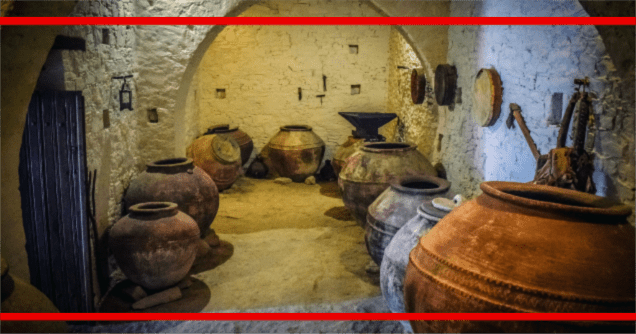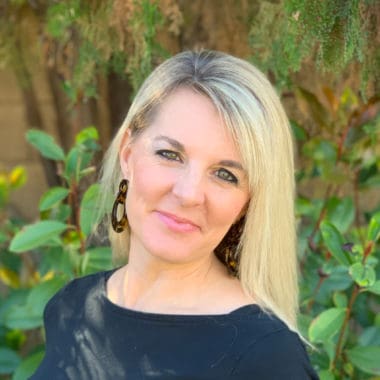What a tremendously glorious thing is the Economy of God! There is nothing He hasn’t created, planned, ordained or allowed that isn’t meant for our salvation, sanctification, and union with Him. Like Joseph overseeing the storehouses in Egypt, God’s wisdom has prepared a thousand graces when we are faced with drought, whether it be in the Church or in our lives. We need only come with humble hands and ask.
“The ultimate end of the whole divine economy is the entry of God’s creatures into the perfect union of the Blessed Trinity,” the Catechism reminds us. (260)
What is incredible is that because the Lord loves us and has made us free, in this mysterious interplay of grace we are allowed to work with Him as He draws everything and everyone to Himself. The little deposits we make by our prayers and mortifications may feel like a mite but are building miraculous interest as God applies it to someone’s salvation. Certain graces are only won by prayers, certain vocations are granted through someone’s fasting. We may witness a powerful conversion–seemingly out of nowhere– and wonder which praying grandmother from years ago had said the rosaries to bring it about.
“Nothing comes from nothing,” sings a grateful Maria in the Sound of Music when her life takes a wonderful and unexpected turn. And it really is true.
Last week a conversation had me thinking about this. I had headed over to a nearby parish for Saturday afternoon confession. Several of us were waiting for the priest to arrive and began talking. (Not a practice I normally engage in before Confession and wouldn’t recommend, but it was an unusual situation: the church building had burned down and confessions were being heard in a classroom and we were milling around waiting.)
“I can’t believe it has been five months since I’ve gone to confession,” lamented an older woman who had arrived right after me. “But I don’t drive. Thank goodness for my son-in-law,” she added, nodding to the man she walked in with.
“It’ll get me ten minutes off hell,” he grinned, eyes twinkling.
I couldn’t help myself. “Hell’s eternal,” I said wryly. “I think you mean Purgatory.”
“Nope.” He crossed his arms. “I tell ’em to bury me face down so I know where I’m going.”
“He’s got time today,” I said, pointing at the priest who had just arrived.
“Don’t need it.”
I would usually have left it at that, but he seemed good-natured enough that I felt I could press further. “Are you Catholic? Were you baptized?”
“Yea, but it wasn’t my choice now, was it? I was a baby.”
“You were baptized into the faith of your parents,” I said. “Did you receive the other sacraments?” His mother-in-law looked surprised at me and began taking great interest in our conversation.
“I was going through preparation for confirmation when I was a boy,” he admitted, “but I was kicked out by a drunken priest for wearing my rosary around my neck. I never went back.” He shrugged and looked down. My heart softened. So there it is, I thought. There’s the wound Satan had to work with.
“I pray every day for his soul,” his mother-in-law said quietly.
“She prays for three hours every day,” he said, half-scoffing, half-affectionate. She nodded.
“Then you’re in good hands,” I said, getting up for my turn. “But I’m going to pray for you, too.”
“You’ll come up empty-handed,” he said lightly.
“Don’t be so sure.”
God won’t force his salvation on anyone, but my instincts told me this man had enough of a heart to receive God’s mercy should the right opportunity arrive. And he certainly had a prayer warrior in his corner–he didn’t fully appreciate her, but this elderly woman waiting for confession had accumulated some pretty hefty truckloads of grace. Whether he opens the door when the heavenly delivery man knocks is up to him. It won’t be wasted, one way or another. Nothing is wasted in God’s economy. “And when they had eaten their fill, he told his disciples, ‘Gather up up the fragments left over, that nothing may be lost.‘” (Jn 6:12)
My college friends Diana and Mike lost a daughter at a young age. Little Theresa had suffered her whole life, and her family and friends prayed passionately, went on pilgrimage, implored saints, met the Pope, begged heaven for healing. That wasn’t the answer God gave, though. He had another, painful but better, plan. What happened to all those prayers, all the grace from a thousand hours of pleading to God? Diana is incredibly wise. “Pray to Theresa,” she told me. “When she got to heaven she had a whole lot of unspent grace waiting for her to give out.”
Diana pointed out to me a story told by Corrie ten Boom, a concentration camp survivor who witnessed to the power of forgiveness and the providence of God. Corrie relates that in 1844 her grandfather, a watchmaker in Holland, began holding prayer meetings with his Christian friends specifically to pray for the Jews. It was a strange sort of idea–there was no real attention given to the Jews at the time, who had settled all over the world in their modern diaspora. But there they were, in that house in Haarlem, praying for the peace of Jerusalem and the blessing of the Jews.
Somebody had inspired, saved and stored up those prayers for another more desperate time.
Exactly one hundred years later, Corrie’s father, the watchmaker’s son, four of his children- including herself–and a great-grandson were arrested for helping the Jews during the German occupation of their country. While they were being arrested, four Jews and two underground workers were hiding in a secret room in their house–the very house where the prayer meetings had been held a century before–unknown to the gestapo. Most of those arrested from her family would not survive. But the accumulated weight of the grace of those prayers not only saved the lives of many Jewish people, it took Corrie all over the world to share about the love of God in the darkest places of our world and of our lives.
“So many times we wonder why God has certain things happend to us,” she writes in her book In My Father’s House. “We try to understand the circumstances of our lives, and we are left wondering. But God’s foolishness is so much wiser than our wisdom.”
I believe someday we will fall on our knees with gratitude for every opportunity to die to self or every moment of suffering, small or big. It is all part of a great and glorious plan, and we are implicated in every part of it. God’s economy is intimately connected with the reality of the communion of saints–every act of love, every prayer, mass, communion, smile at a stranger. When the curtains are pulled away and God shows us what He could do with our little offerings–joined to His, that is the key–we will be all amazement. “To pick up a pin for love can save a soul,” said St. Thérèse.
And I’ve no doubt that we’ll be even more overwhelmed by just how many people and saints have prayed us there, pouring oil into our dimming lamps when we weren’t even looking. That, my friends, may be the biggest surprise of all.
What can we do today to make some small deposits in God’s heavenly storehouse?
Image of ancient storehouse courtesy of Unsplash.




